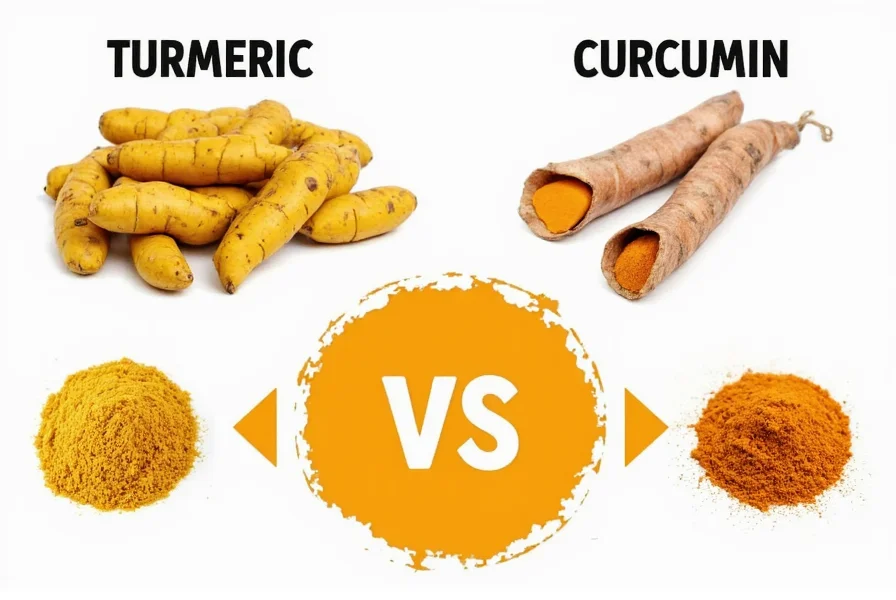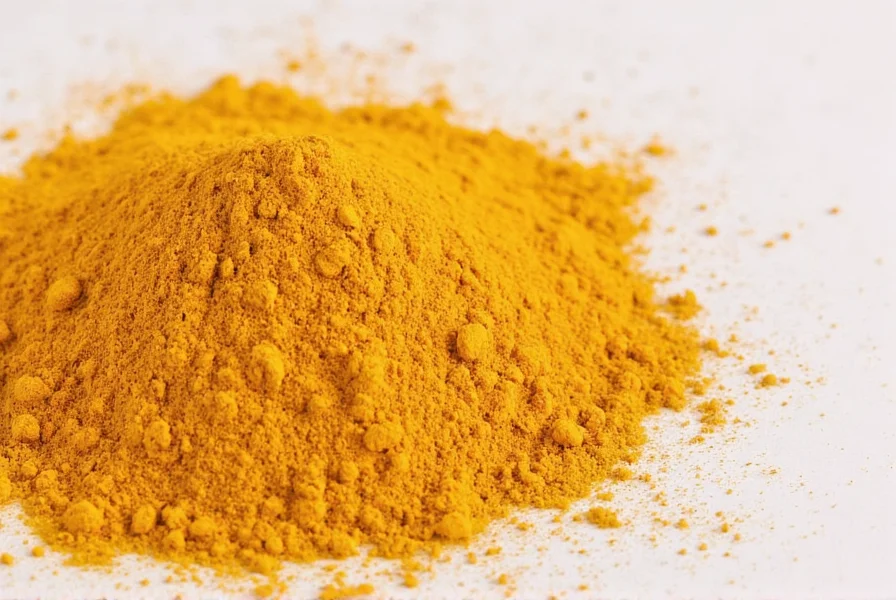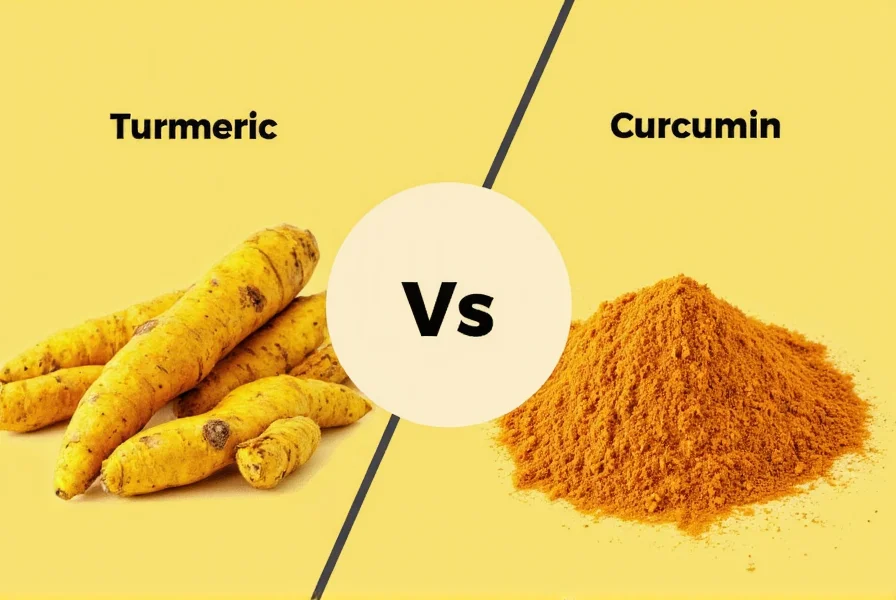Understanding the distinction between turmeric and curcumin is essential for making informed decisions about dietary supplements and natural remedies. Many consumers mistakenly believe these terms are interchangeable, leading to confusion about product efficacy and appropriate usage.
What Exactly Is Turmeric?
Turmeric (Curcuma longa) is a flowering plant in the ginger family, native to Southeast Asia and India. The part used medicinally and culinarily is the rhizome (underground stem), which people dry and grind into the familiar yellow-orange spice.
Traditional Ayurvedic and Chinese medicine have utilized turmeric for thousands of years to address inflammation, digestive issues, and skin conditions. Culinary applications span Indian, Middle Eastern, and Southeast Asian cuisines, where it provides both color and distinctive flavor.
Demystifying Curcumin
Curcumin represents the most extensively studied bioactive compound within turmeric, accounting for approximately 2-8% of raw turmeric's composition. This polyphenol gives turmeric its vibrant yellow color and demonstrates potent anti-inflammatory and antioxidant properties in scientific research.
When researchers investigate turmeric's health benefits, they often isolate curcumin because its effects can be measured more precisely than the whole spice. This scientific focus has led to the development of curcumin-specific supplements that contain significantly higher concentrations than what occurs naturally in turmeric.
| Characteristic | Turmeric | Curcumin |
|---|---|---|
| Nature | Whole plant root (rhizome) | Single bioactive compound |
| Composition | Contains curcumin (2-8%), other curcuminoids, essential oils | Pure curcuminoid (typically 95%+ in supplements) |
| Natural Concentration | 100% of turmeric root | 2-8% of turmeric root |
| Supplement Dosage | Typically 500-2000mg | Typically 250-1500mg |
| Bioavailability | Naturally low | Even lower without enhancement |
Comparing Health Benefits: Whole Turmeric vs Isolated Curcumin
Research suggests both forms offer health benefits, but with important distinctions. Whole turmeric provides a spectrum of beneficial compounds working synergistically—a concept scientists call the "entourage effect." The rhizome contains three primary curcuminoids (curcumin, demethoxycurcumin, and bisdemethoxycurcumin), plus turmerones and other compounds that may enhance bioavailability and provide complementary benefits.
Curcumin supplements deliver higher concentrations of this specific compound, making them potentially more effective for targeted therapeutic applications. However, pure curcumin has notoriously poor bioavailability—only about 1% gets absorbed by the body without enhancement. Many modern curcumin supplements address this through specialized formulations like:
- Liposomal curcumin
- Curcumin with piperine (black pepper extract)
- Nanoparticle curcumin
- Phospholipid-bound curcumin
Addressing Common Misconceptions About Turmeric Supplements
Marketing language often creates confusion between these terms. Many products labeled as "turmeric supplements" actually contain primarily curcumin extracts. Understanding supplement labels is crucial:
- "Standardized to 95% curcuminoids" indicates a curcumin extract, not whole turmeric
- "Whole turmeric powder" contains the full spectrum of compounds at natural concentrations
- "Curcumin with enhanced absorption" refers to isolated curcumin with bioavailability technology
When evaluating turmeric vs turmeric curcumin supplements for inflammation, the appropriate choice depends on your specific health goals and whether you prioritize the synergistic effects of whole turmeric or the concentrated potency of isolated curcumin.
Practical Recommendations for Consumers
For culinary use, whole turmeric powder provides both flavor and modest health benefits. Adding black pepper (which contains piperine) significantly enhances curcumin absorption from food sources.
For therapeutic purposes, consider these evidence-based approaches:
- For general wellness: Whole turmeric supplements (500-1000mg) with black pepper
- For targeted inflammation support: Enhanced curcumin supplements (250-500mg) with proven bioavailability technology
- For digestive health: Whole turmeric may provide broader benefits due to additional compounds

Research Evidence: What Science Actually Shows
Multiple studies demonstrate that while curcumin shows impressive results in laboratory settings, its effectiveness in humans is limited by poor absorption. A 2022 meta-analysis published in Nutrients found that enhanced curcumin formulations showed significantly better clinical outcomes than standard curcumin for joint health and inflammation markers.
Interestingly, some research suggests whole turmeric may offer benefits beyond what isolated curcumin provides. A 2021 study in Phytotherapy Research indicated that turmeric's essential oils enhance curcumin absorption and provide complementary anti-inflammatory effects.

Making an Informed Choice: Turmeric or Curcumin Supplements
The decision between turmeric and curcumin supplements ultimately depends on your specific health objectives. If you're exploring turmeric vs curcumin for arthritis relief, enhanced curcumin formulations generally provide more consistent results due to higher bioavailability. For general wellness and prevention, whole turmeric offers a broader spectrum of beneficial compounds.
Always consult with a healthcare provider before starting any new supplement regimen, especially if you take blood thinners or have gallbladder issues. Quality matters significantly—look for third-party tested products from reputable manufacturers when choosing between turmeric extract vs curcumin supplements.











 浙公网安备
33010002000092号
浙公网安备
33010002000092号 浙B2-20120091-4
浙B2-20120091-4